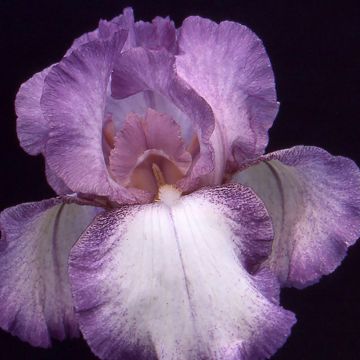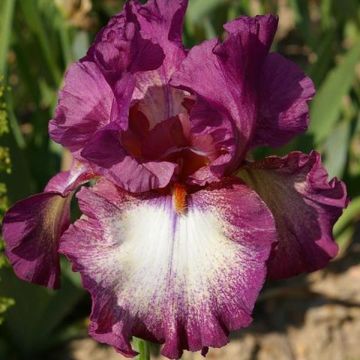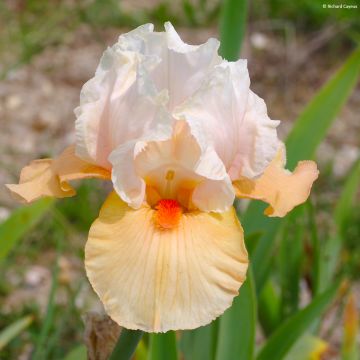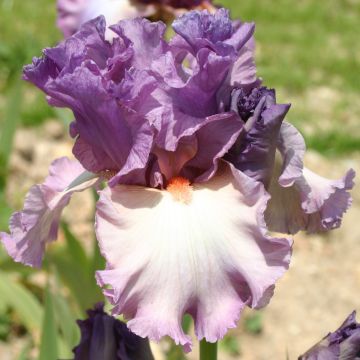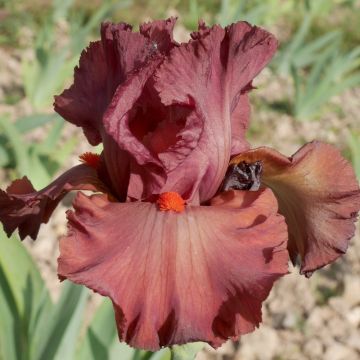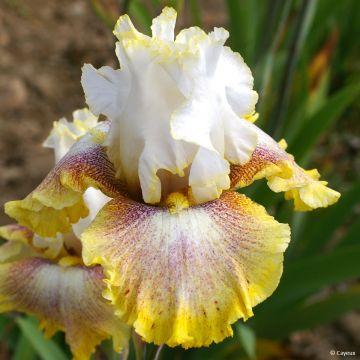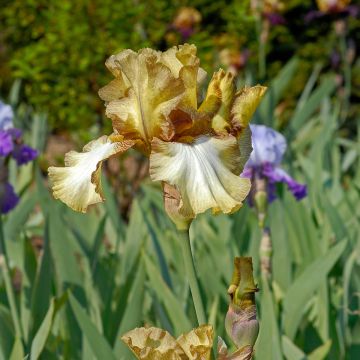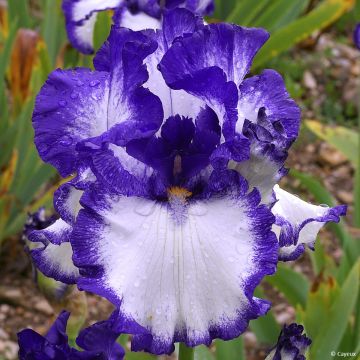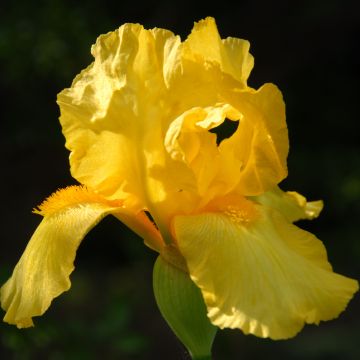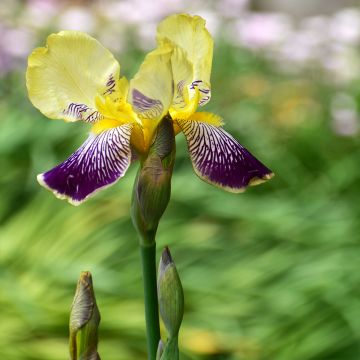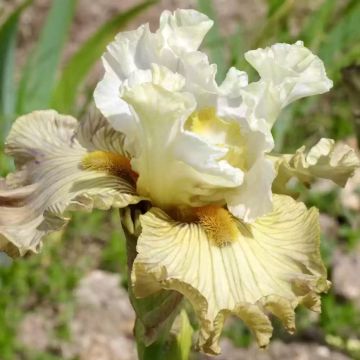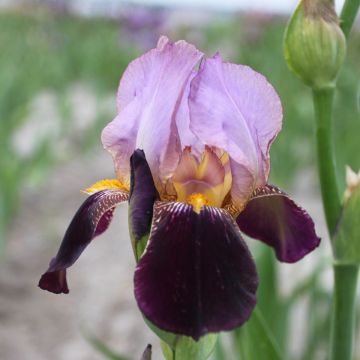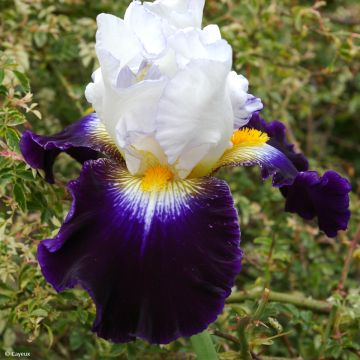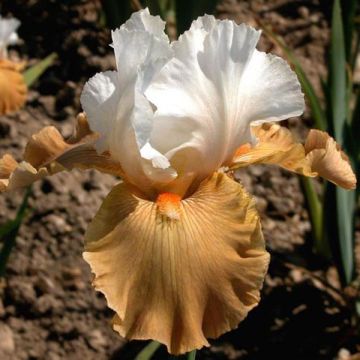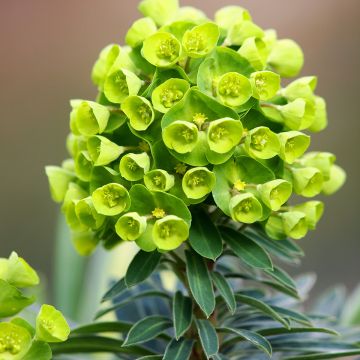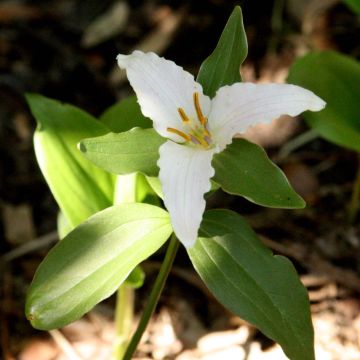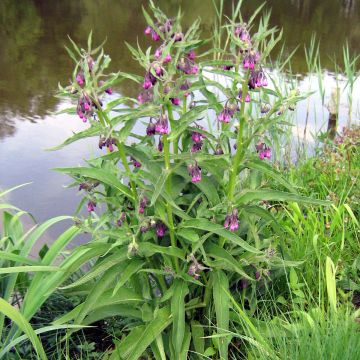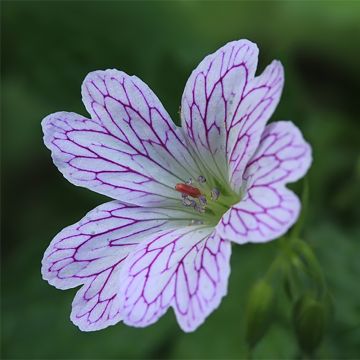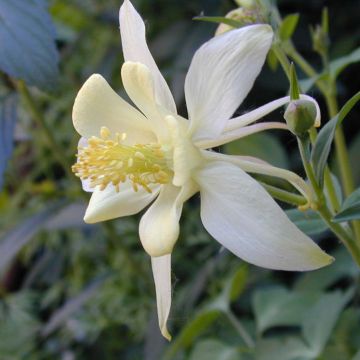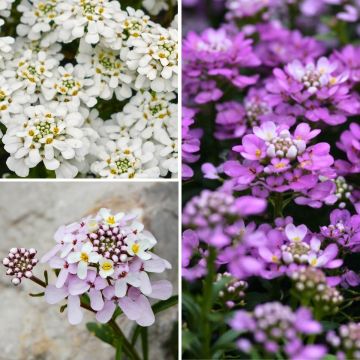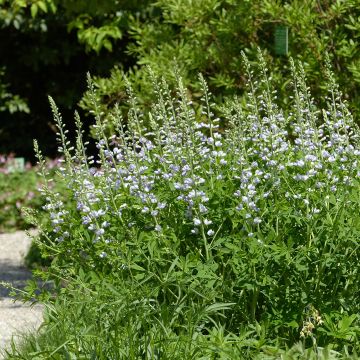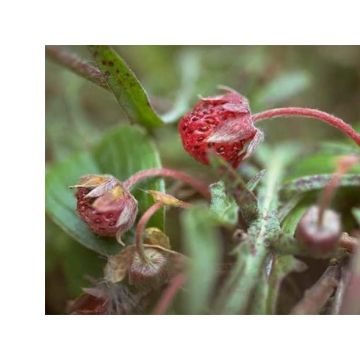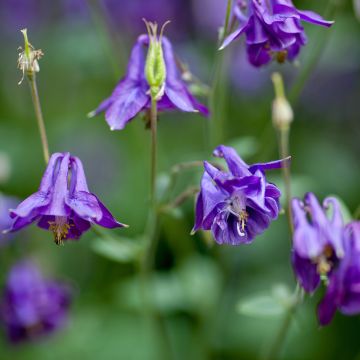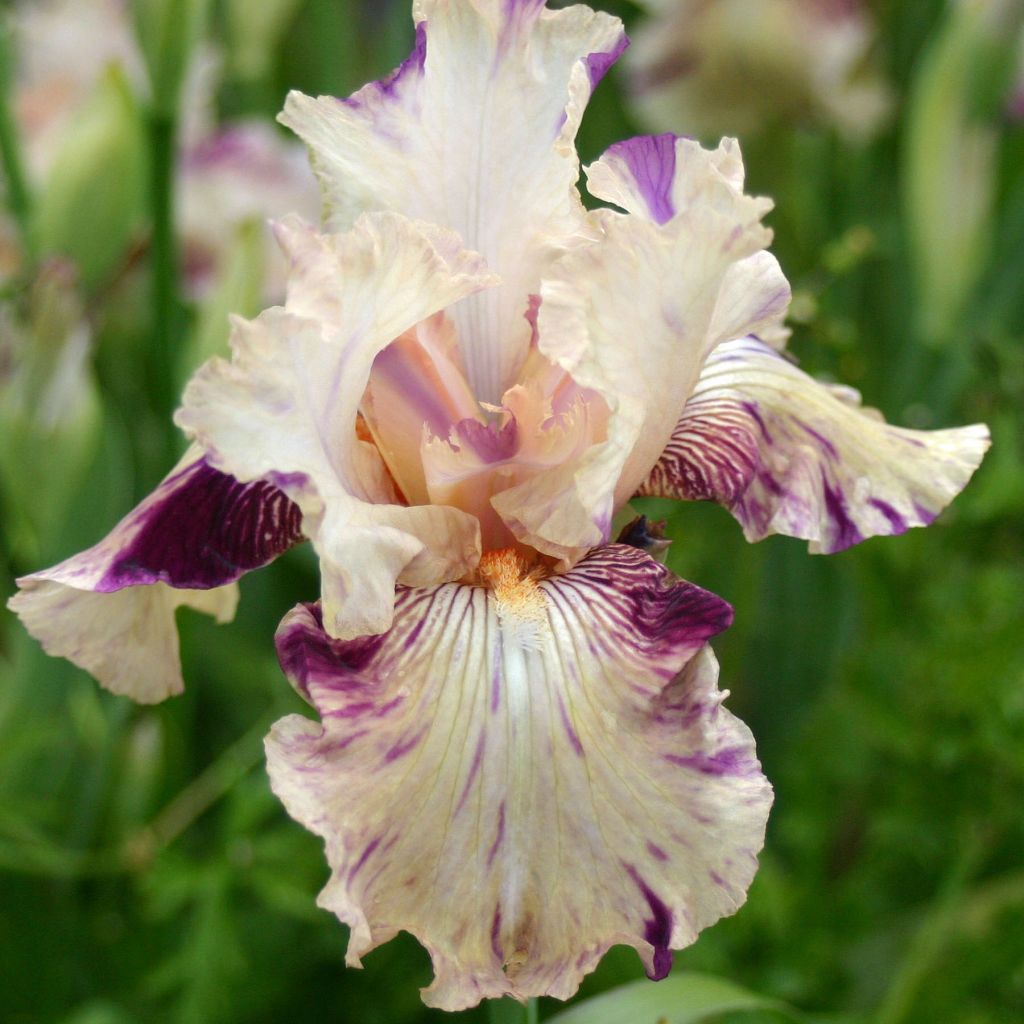

Iris germanica Raspberry Silk - Iris de Bordure.
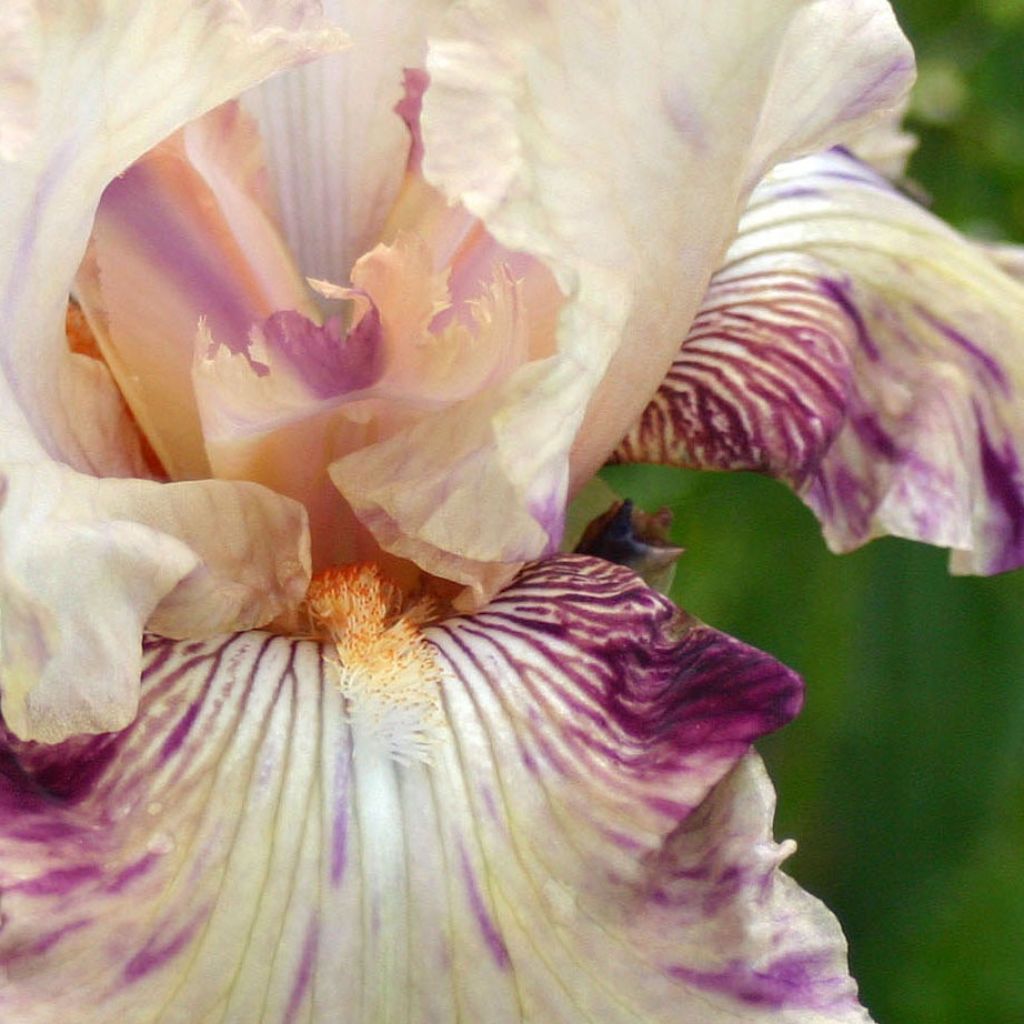

Iris germanica Raspberry Silk - Iris de Bordure.
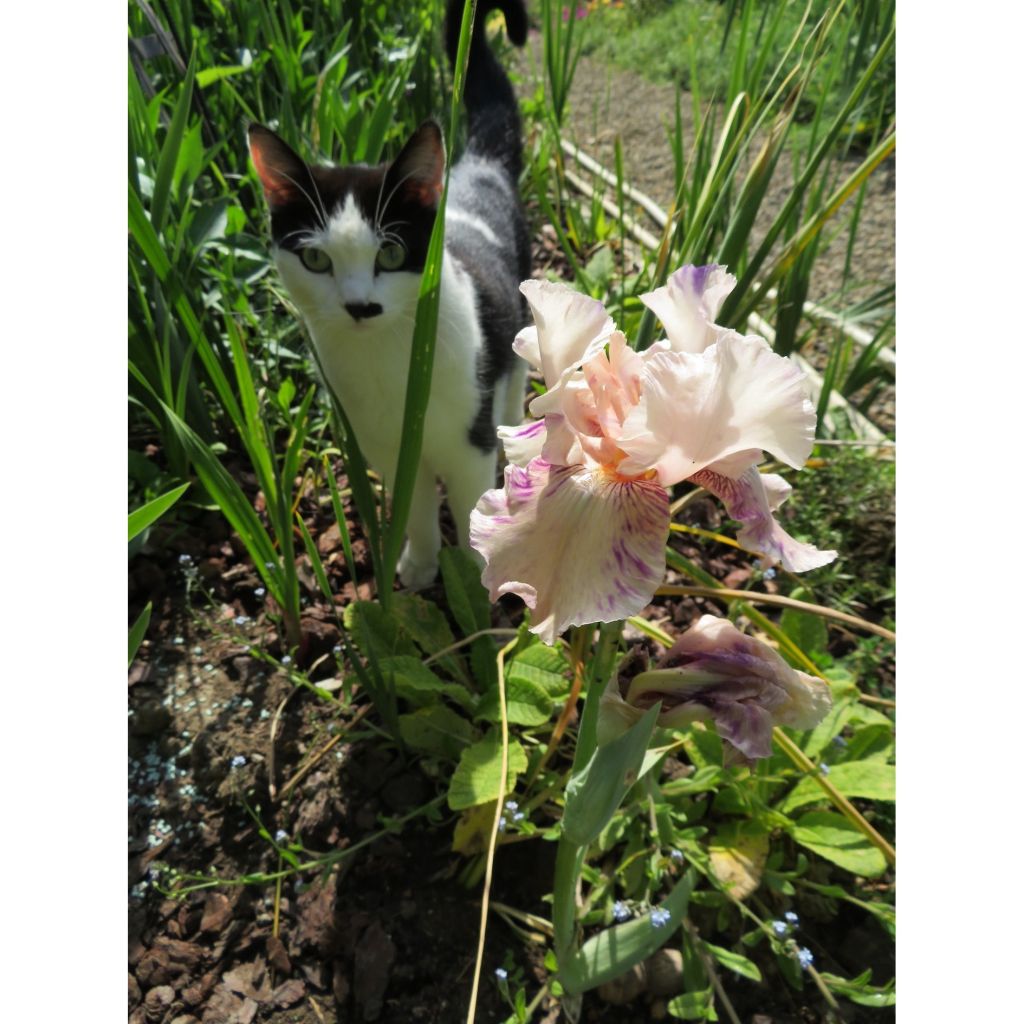

Iris Raspberry Silk - Border Bearded Iris
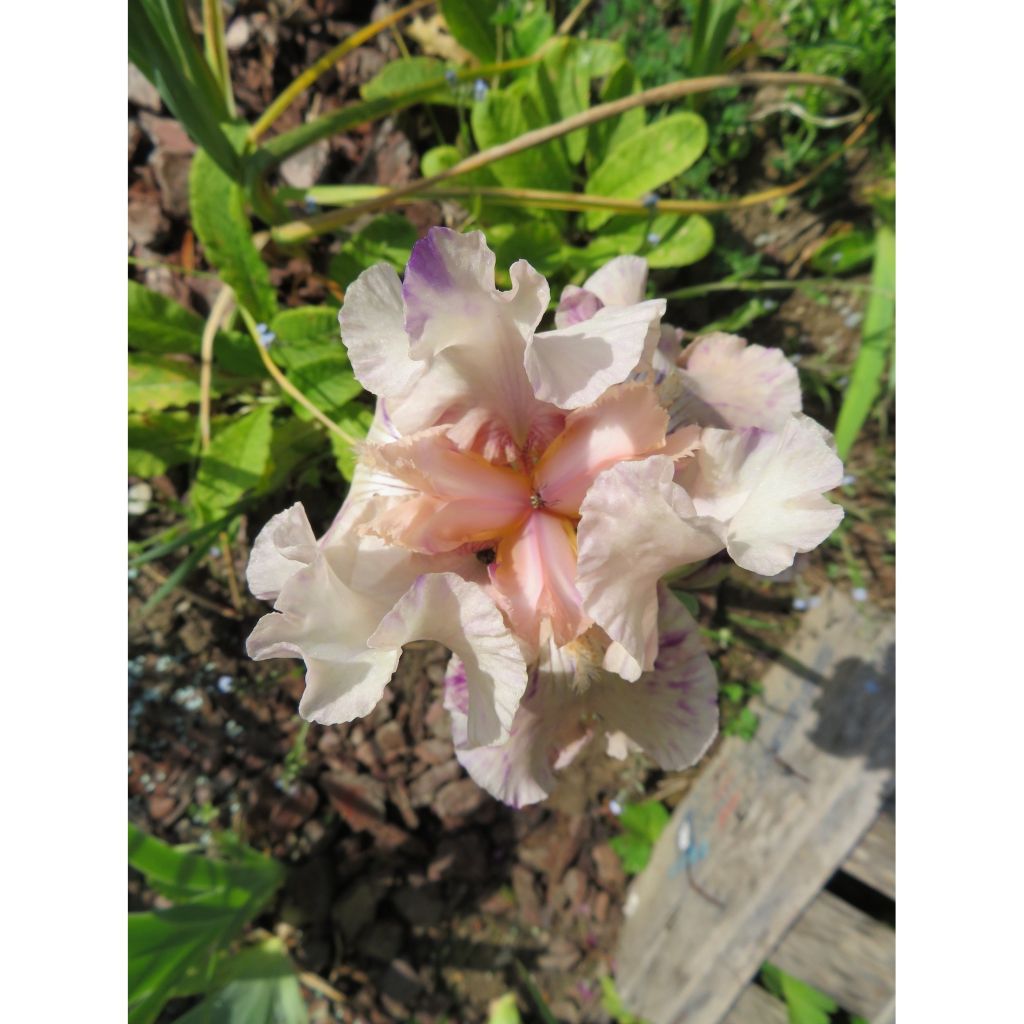

Iris Raspberry Silk - Border Bearded Iris
Iris Raspberry Silk - Border Bearded Iris
Iris germanica Raspberry Silk
German Iris, Bearded Iris
Why not try an alternative variety in stock?
View all →This plant carries a 12 months recovery warranty
More information
We guarantee the quality of our plants for a full growing cycle, and will replace at our expense any plant that fails to recover under normal climatic and planting conditions.
From €5.90 for pickup delivery and €6.90 for home delivery
Express home delivery from €8.90.

Does this plant fit my garden?
Set up your Plantfit profile →
Description
Iris 'Raspberry Silk' is a variety of iris that will appeal to fans of unusual flowers. This shorter border iris, produces surprising flowers that are completely different, entirely and randomly striped with soft pink and raspberry purple on a cream background. The soft pink heart, is animated by a pretty mandarin beard tinged with pink and exhales a sweet iris fragrance. Border irises, with low and sturdy stems, resist bad weather better. They decorate gardens that are more exposed to wind and rain, the front of flower beds, on slopes or in a large rockery.
Iris 'Raspberry Silk' is a rhizomatous and deciduous perennial plant, with an upright tufted habit. It belongs to the Iridaceae family. It is one of the many cultivars obtained over centuries, whose controversial origin is discussed around the number of chromosomes of potential ancestors. Note that Garden Irises have European origins. This cultivar is classified in the horticultural category of border irises, but also of 'broken colors' irises that are distinguished by randomly striped and spotted flowers. 'Raspberry Silk' is a low variety, which will not exceed 65 cm (26in) high when in bloom, with a sturdy stem bearing multiple flower buds. The clump will spread quickly, with no theoretical limit over time, as the centre rhizomes become bare in favour of the outer rhizomes. The foliage consists of long sword-shaped, glaucous green and highly veined leaves. Floral stems appear in April which will have flowers in May, in the middle of the iris season, blooming from the top to the lower branches. The strange and fascinating colour of this plant is magnified by the silky texture of the petals and sepals and a sweet powdery fragrance. The beards of 'Raspberry Silk' are orange mandarin tinted with pink, white at their tips and red-orange at the throat.
Obtained by Donald Spoon, 2000. (Peach Jam x Little John).
To accompany irises, choose plants that thrive in the sun and in dry soil, low or with light foliage so as not to cast shade on the iris, and pay attention to their decorative appearance and flowering date. Gaura, for example, meets these three criteria, and its later flowering will keep the flower bed attractive in summer. Eschscholzia, perennial geraniums, salvias, and Libertias also complement irises very well. Against a wall, the relative shelter from the wind allows for the use of tall irises. They can also be planted in the foreground of shorter and earlier varieties. The vegetable garden can also be embellished with a few clumps or borders of irises for cut flowers.
Path border: the entire range can be used, from early dwarfs under 40 cm (16in), to tall irises over 75 cm (30in) blooming in May, including intermediates (in size and earliness) and border irises, of medium size but blooming with the tall ones. Tall irises, exposed to the wind, may need staking to prevent them from being bent.
Flower bed border: the domain of border irises but also dwarfs.
Mixed border: the entire range of sizes can be used, to be chosen according to the location (foreground, background) and the height of the surrounding plants.
Iris bed, iris garden: the paradise of the iris lover. Using the full range of bearded irises allows for two and a half months of blooming in spring. The choice of reblooming irises offers some additional flowers in late summer or autumn.
Report an error about the product description
Iris Raspberry Silk - Border Bearded Iris in pictures
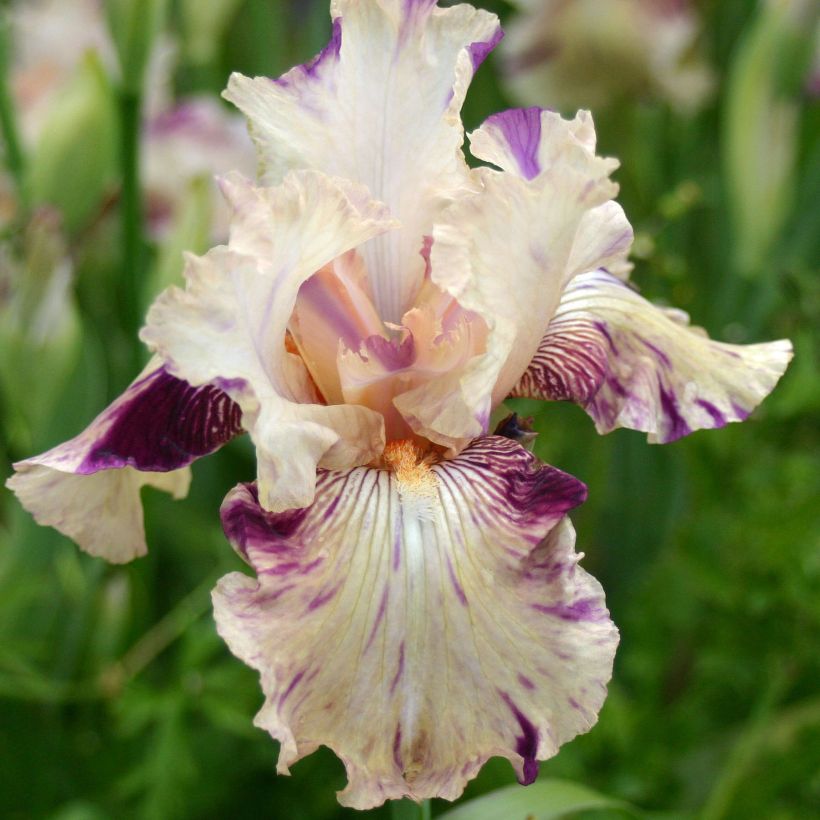

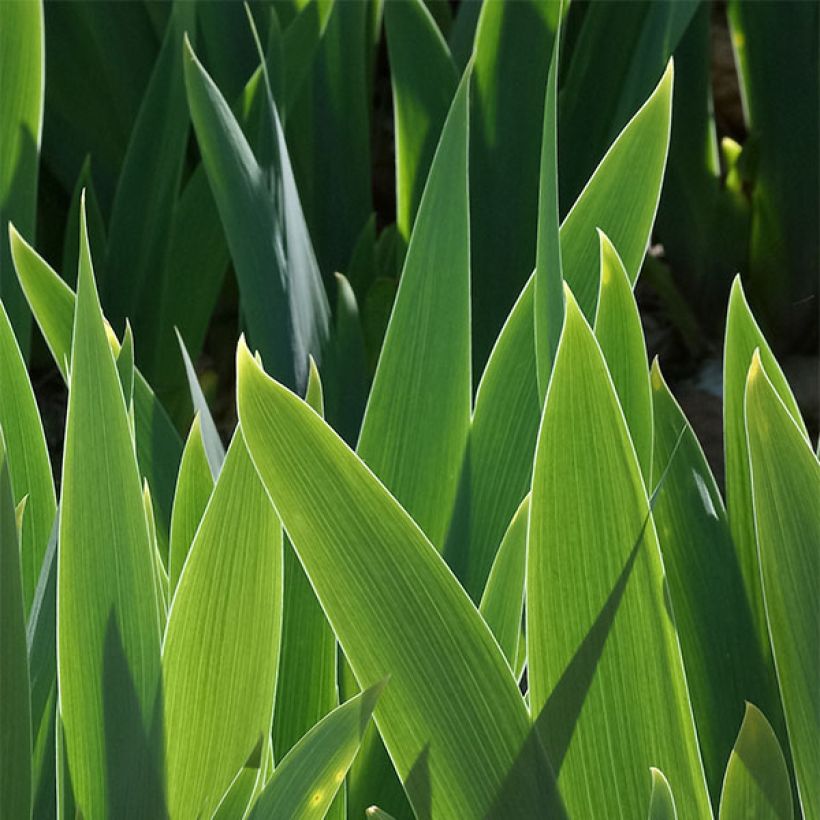

Flowering
Foliage
Plant habit
Botanical data
Iris
germanica
Raspberry Silk
Iridaceae
German Iris, Bearded Iris
Cultivar or hybrid
Other German Iris - Bearded Iris
Planting and care
Do you have a very sunny location, rather dry in summer?
This is the ideal location for planting irises! In the shade, they grow but do not flower. They are hardy and do not need winter protection. Well-drained soil is perfect, even if it is rather dry, chalky, or stony. Too much moisture promotes rootstock rot. Plant from July to September. This allows the rootstocks to grow and develop new roots before winter. They should be planted as soon as purchased for better results. Plan to divide the irises every 4 years or so to give them fresh soil. They have strong growth and need space to develop and flower well. Plant with spacing appropriate to the size and vigour of the variety: about 34-50 cm (13-20in) for tall ones. Always take into account the direction of growth of the rootstocks by arranging them in a star shape, with buds and leaves facing outwards, and spacing them away from other varieties so that they have room to grow.
Planting
Dig a hole that is wide and deep enough. Make a conical mound of soil in the hole, place the rhizome and spread out the roots on top of it. Cover the roots. It is important that the rhizome is level with the surface of the soil. It should not be planted in a hollow (risk of rot). Take into account that the soil will settle and the iris will sink. In clayey or damp soil, the rhizome can even be left raised on a slight mound of a few centimetres. To make the soil adhere to the roots, lightly firm and water abundantly after planting. Water 2-3 times if necessary until it takes root.
Maintenance:
Keep the soil weed-free by superficial hoeing, taking care not to damage the rhizome or roots. Weeds shade the irises, retain moisture (rot) and attract slugs. Similarly, cut off dry leaves. If they are diseased (reddish-brown-bordered spots of heterosporiosis), we recommend burning them. Remove faded flowers.
Planting period
Intended location
Care
-
, onOrder confirmed
Reply from on Promesse de fleurs
Spring flowering perennials
Haven't found what you were looking for?
Hardiness is the lowest winter temperature a plant can endure without suffering serious damage or even dying. However, hardiness is affected by location (a sheltered area, such as a patio), protection (winter cover) and soil type (hardiness is improved by well-drained soil).

Photo Sharing Terms & Conditions
In order to encourage gardeners to interact and share their experiences, Promesse de fleurs offers various media enabling content to be uploaded onto its Site - in particular via the ‘Photo sharing’ module.
The User agrees to refrain from:
- Posting any content that is illegal, prejudicial, insulting, racist, inciteful to hatred, revisionist, contrary to public decency, that infringes on privacy or on the privacy rights of third parties, in particular the publicity rights of persons and goods, intellectual property rights, or the right to privacy.
- Submitting content on behalf of a third party;
- Impersonate the identity of a third party and/or publish any personal information about a third party;
In general, the User undertakes to refrain from any unethical behaviour.
All Content (in particular text, comments, files, images, photos, videos, creative works, etc.), which may be subject to property or intellectual property rights, image or other private rights, shall remain the property of the User, subject to the limited rights granted by the terms of the licence granted by Promesse de fleurs as stated below. Users are at liberty to publish or not to publish such Content on the Site, notably via the ‘Photo Sharing’ facility, and accept that this Content shall be made public and freely accessible, notably on the Internet.
Users further acknowledge, undertake to have ,and guarantee that they hold all necessary rights and permissions to publish such material on the Site, in particular with regard to the legislation in force pertaining to any privacy, property, intellectual property, image, or contractual rights, or rights of any other nature. By publishing such Content on the Site, Users acknowledge accepting full liability as publishers of the Content within the meaning of the law, and grant Promesse de fleurs, free of charge, an inclusive, worldwide licence for the said Content for the entire duration of its publication, including all reproduction, representation, up/downloading, displaying, performing, transmission, and storage rights.
Users also grant permission for their name to be linked to the Content and accept that this link may not always be made available.
By engaging in posting material, Users consent to their Content becoming automatically accessible on the Internet, in particular on other sites and/or blogs and/or web pages of the Promesse de fleurs site, including in particular social pages and the Promesse de fleurs catalogue.
Users may secure the removal of entrusted content free of charge by issuing a simple request via our contact form.
The flowering period indicated on our website applies to countries and regions located in USDA zone 8 (France, the United Kingdom, Ireland, the Netherlands, etc.)
It will vary according to where you live:
- In zones 9 to 10 (Italy, Spain, Greece, etc.), flowering will occur about 2 to 4 weeks earlier.
- In zones 6 to 7 (Germany, Poland, Slovenia, and lower mountainous regions), flowering will be delayed by 2 to 3 weeks.
- In zone 5 (Central Europe, Scandinavia), blooming will be delayed by 3 to 5 weeks.
In temperate climates, pruning of spring-flowering shrubs (forsythia, spireas, etc.) should be done just after flowering.
Pruning of summer-flowering shrubs (Indian Lilac, Perovskia, etc.) can be done in winter or spring.
In cold regions as well as with frost-sensitive plants, avoid pruning too early when severe frosts may still occur.
The planting period indicated on our website applies to countries and regions located in USDA zone 8 (France, United Kingdom, Ireland, Netherlands).
It will vary according to where you live:
- In Mediterranean zones (Marseille, Madrid, Milan, etc.), autumn and winter are the best planting periods.
- In continental zones (Strasbourg, Munich, Vienna, etc.), delay planting by 2 to 3 weeks in spring and bring it forward by 2 to 4 weeks in autumn.
- In mountainous regions (the Alps, Pyrenees, Carpathians, etc.), it is best to plant in late spring (May-June) or late summer (August-September).
The harvesting period indicated on our website applies to countries and regions in USDA zone 8 (France, England, Ireland, the Netherlands).
In colder areas (Scandinavia, Poland, Austria...) fruit and vegetable harvests are likely to be delayed by 3-4 weeks.
In warmer areas (Italy, Spain, Greece, etc.), harvesting will probably take place earlier, depending on weather conditions.
The sowing periods indicated on our website apply to countries and regions within USDA Zone 8 (France, UK, Ireland, Netherlands).
In colder areas (Scandinavia, Poland, Austria...), delay any outdoor sowing by 3-4 weeks, or sow under glass.
In warmer climes (Italy, Spain, Greece, etc.), bring outdoor sowing forward by a few weeks.

































